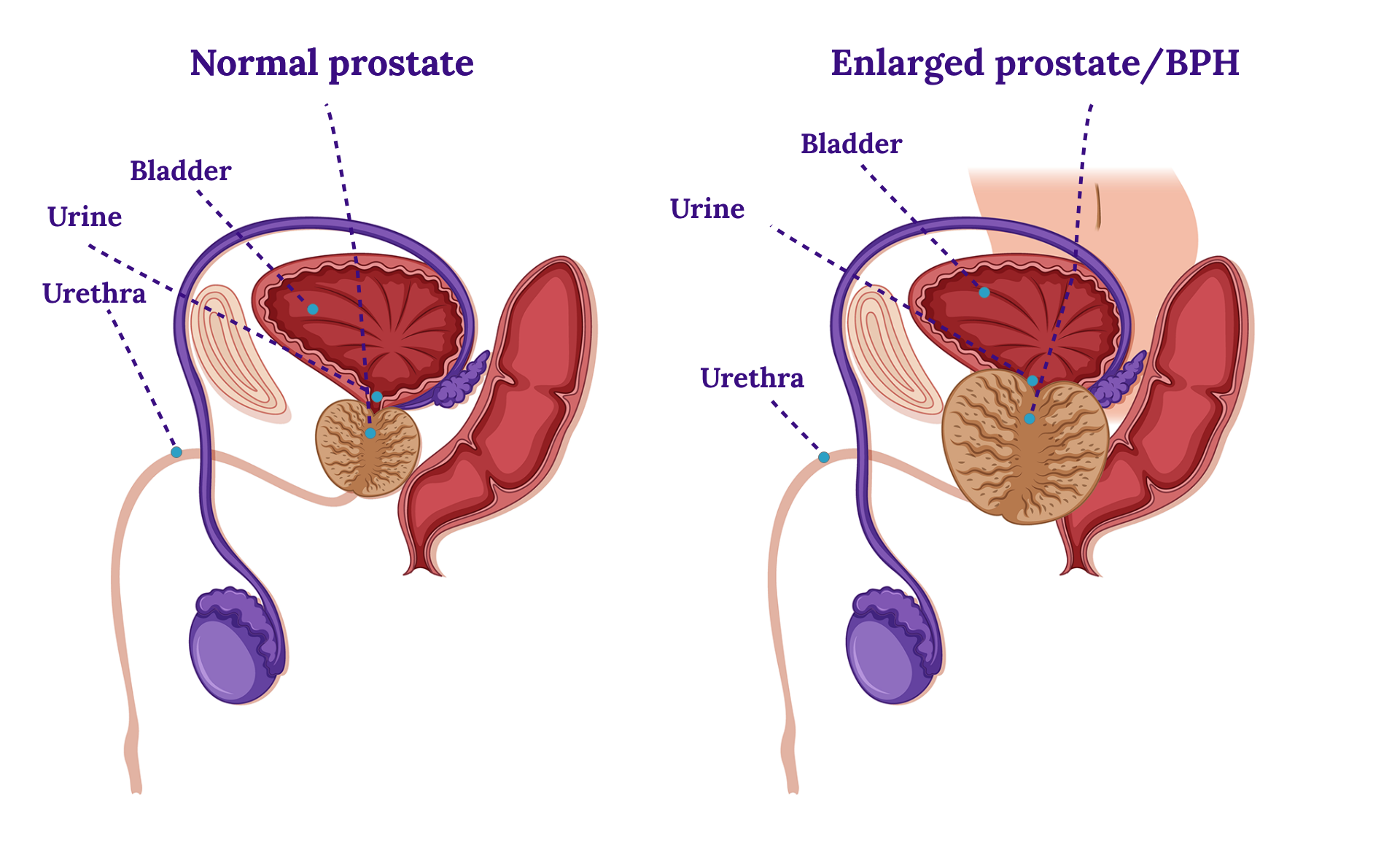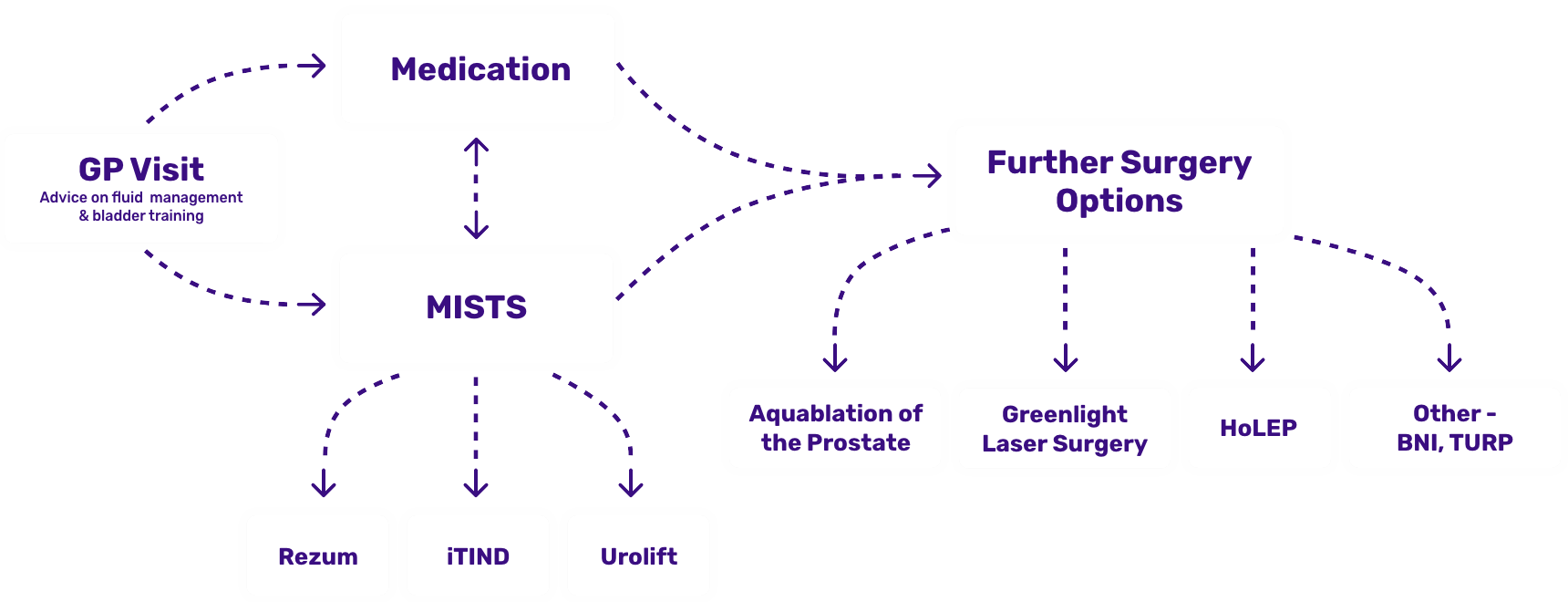Benign Prostate Enlargement (BPE),Hyperplasia (BPH)
Most men will develop and suffer with symptoms relating to their prostate gland. This small gland sits at the exit from the bladder and usually, from inevitable and normal growth over time, can cause a degree of obstruction to the flow of urine from the bladder resulting in a wide range of symptoms including a poor urinary flow, difficulty initiating a void and a sensation of poor bladder emptying (voiding symptoms). However it is the secondary impact on bladder function that results in the most bothersome symptoms of passing urine too frequently, increasingly with little warning (urgency) and getting up at night a number of times to pass urine (nocturia), the so called ‘storage ‘ symptoms. By the age of 60, some 60% or more of men will have some kind of urinary symptoms, and it is when these symptoms cause ‘ bother’ thanks to a real impact on quality of life, that specialist help may be sought.


 Treatments of symptomatic BPE
Treatments of symptomatic BPE
The management of male urinary symptoms often follows a recognised pathway of symptom and fluid management, followed by medical therapy (tablets) and finally surgical intervention. However, the last decade has seen an evolution of so called minimally invasive techniques (MISTs) that challenge this pathway representing options both as an alternative to tablets and to standard surgical approaches.
The focus has shifted to offering treatments that look to alleviate symptoms but do so at a much lower risk of side effects, particularly upon sexual function. Not all options are suitable or appropriate for all people and thanks to our un paralleled experience in this field, The London Prostate Centre are in an almost unique position to discuss and offer a tailor made approach to fit the needs of an individual patient.
